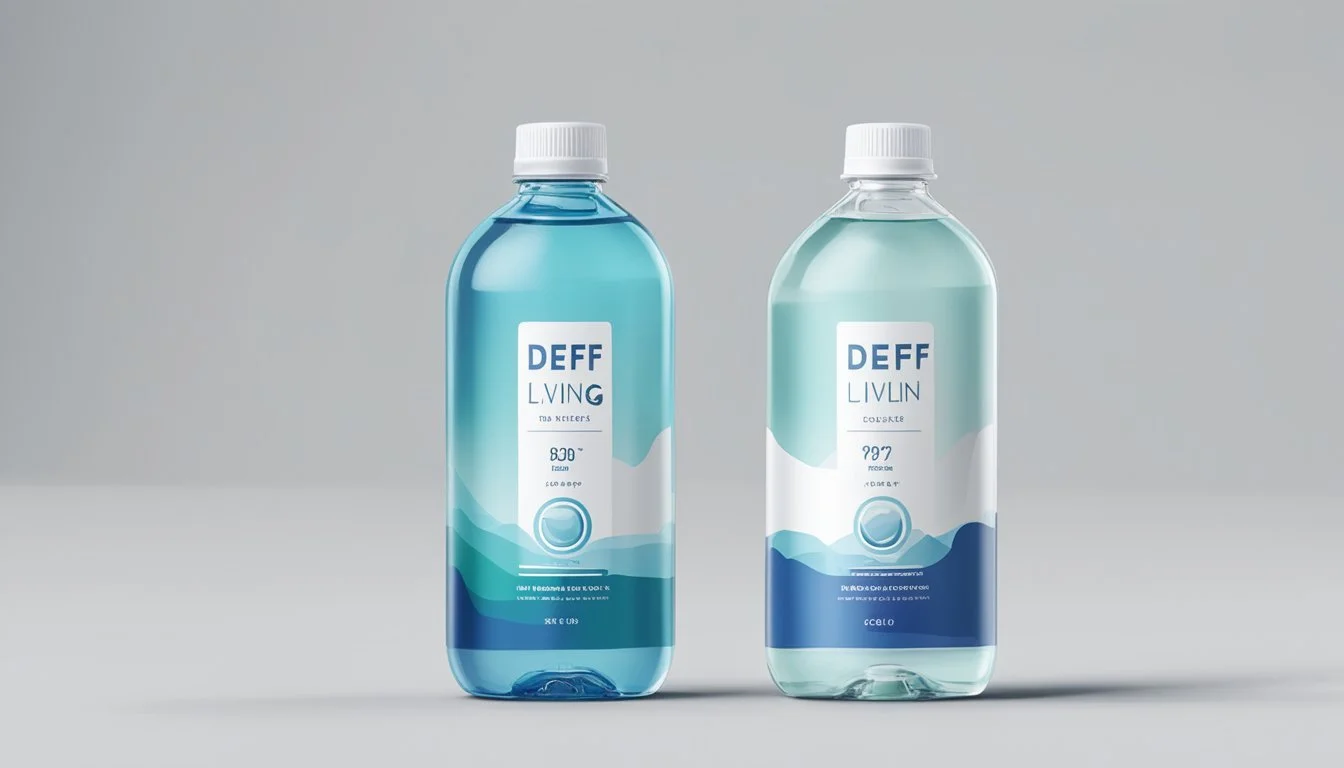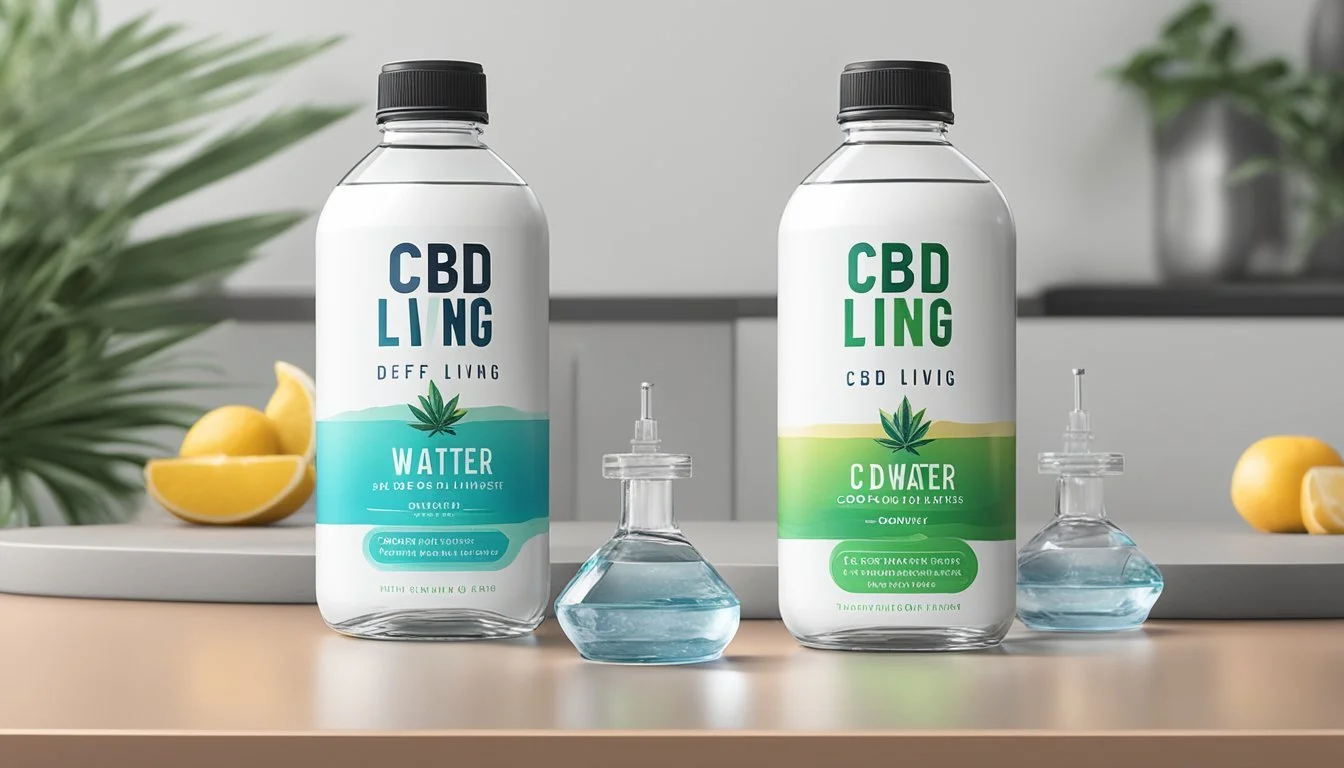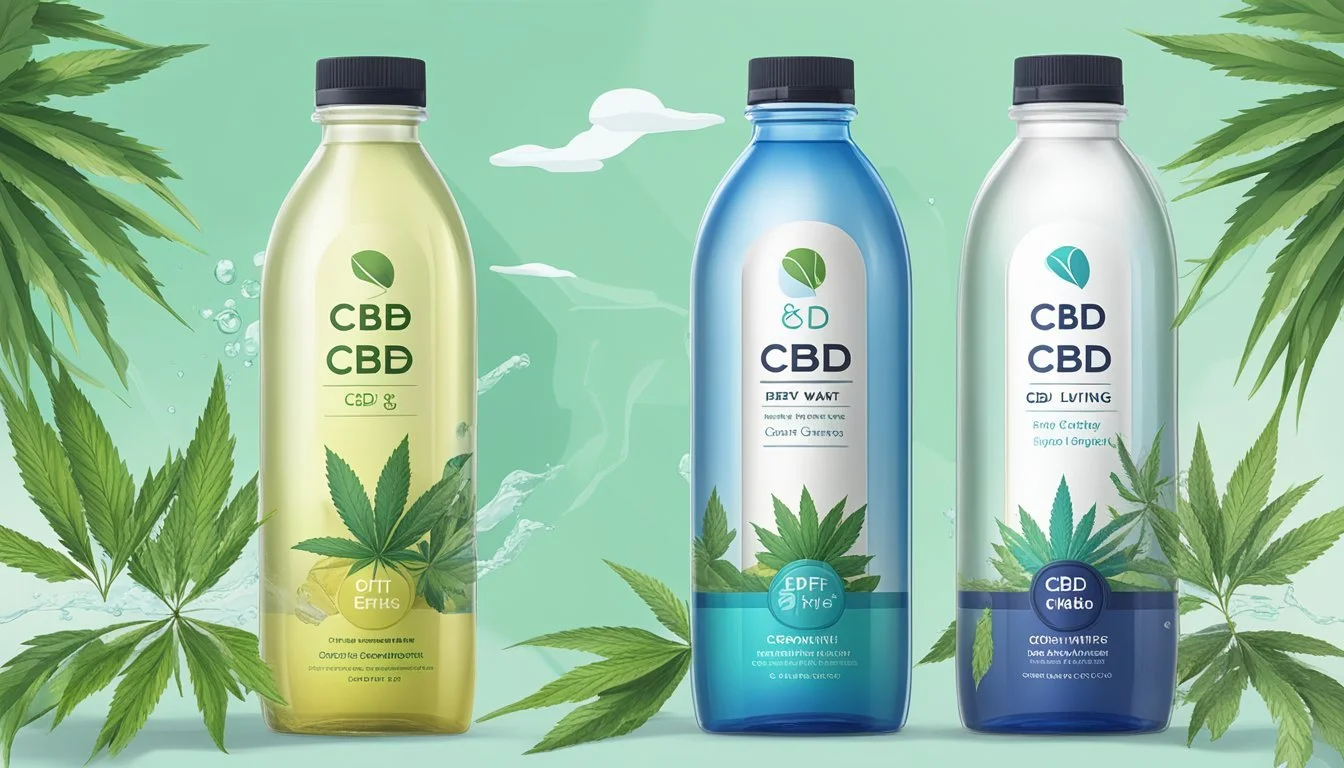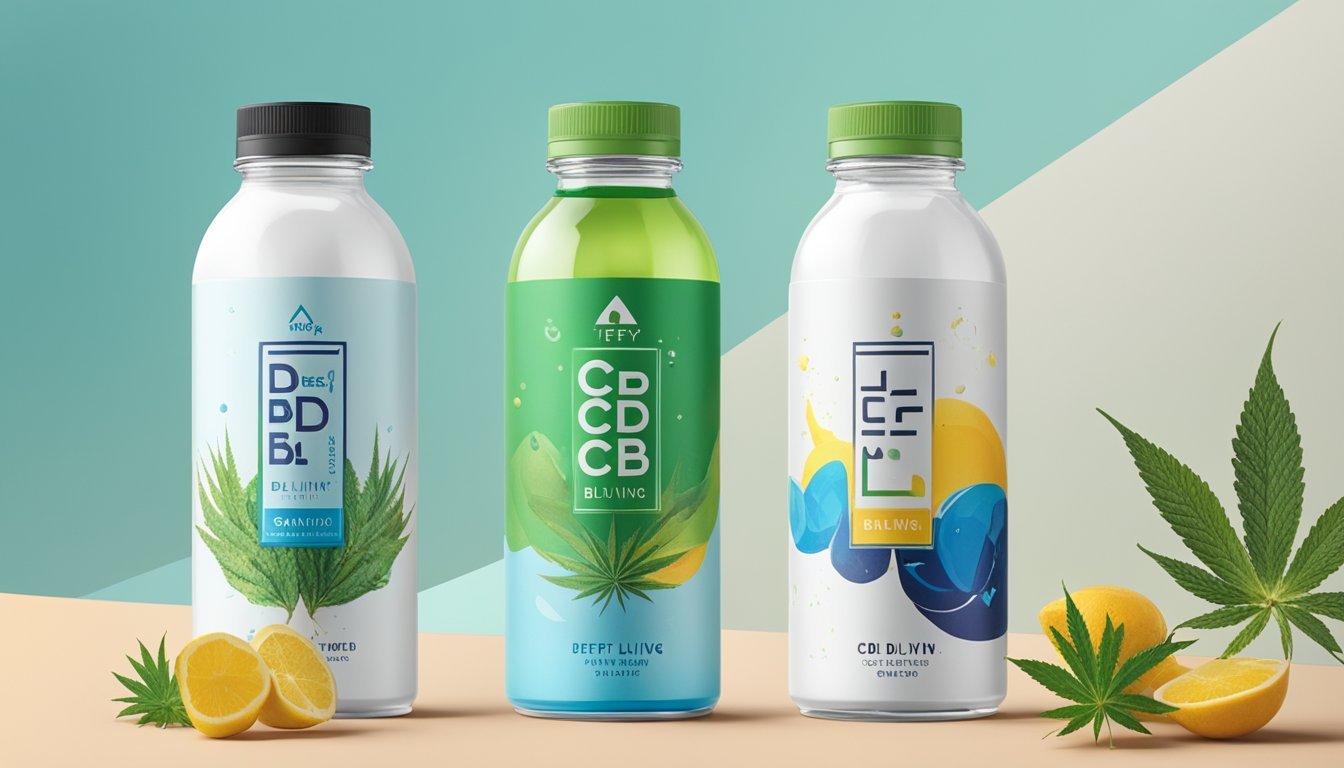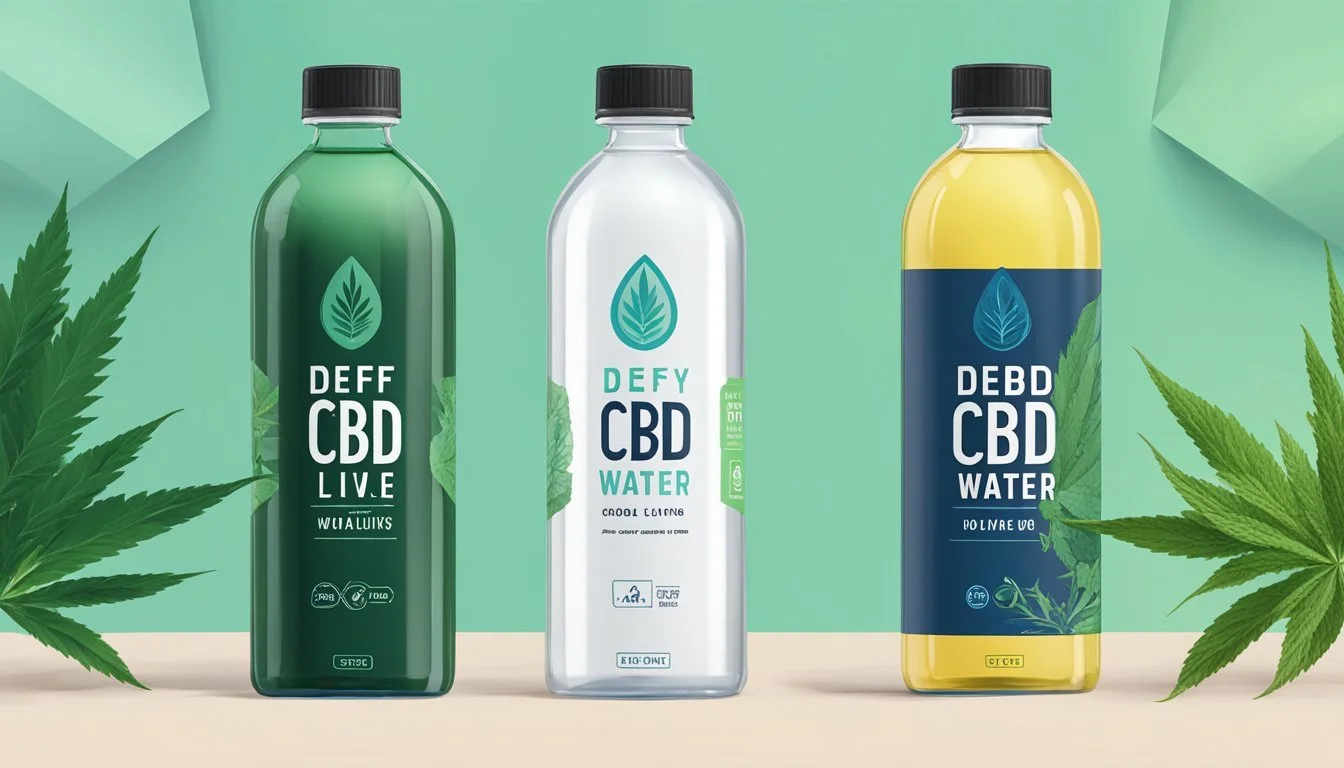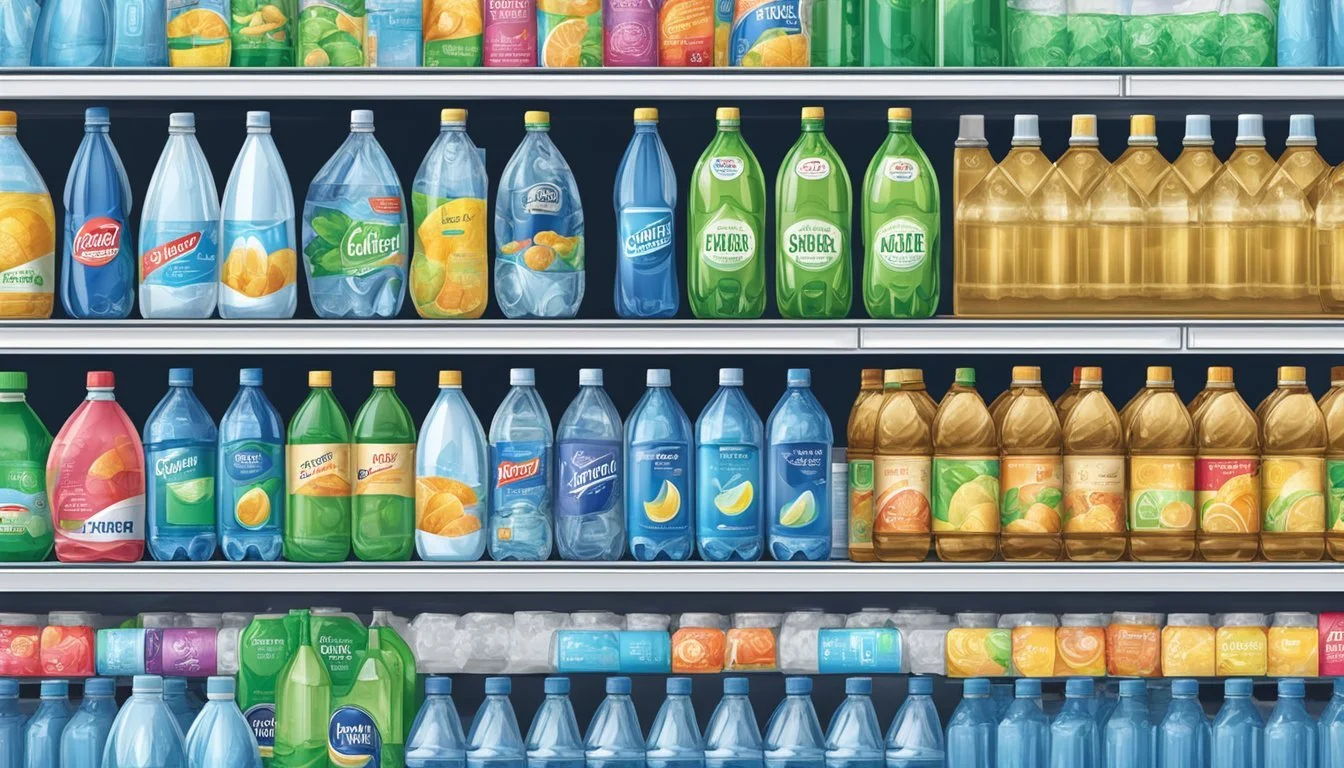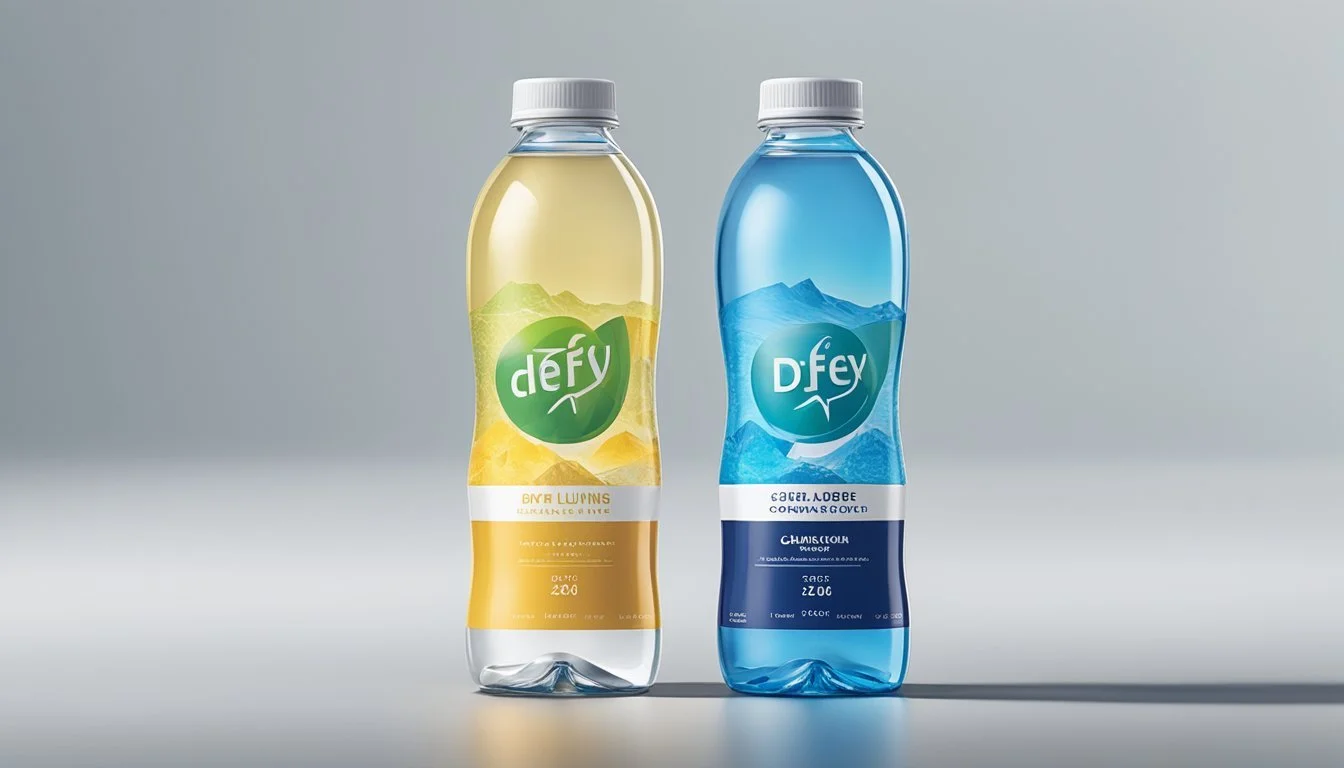Defy vs. CBD Living
Comparing the Best Bottled Water Brands
Choosing the right CBD-infused bottled water can make a significant difference in your wellness routine. Defy and CBD Living Water are popular options, yet they differ in key aspects that might sway your decision. From the precise amount of CBD to the flavors offered, each brand brings something unique to the table.
While Defy combines top-tier hydration with 20 mg of active hemp extract, CBD Living opts for 10 mg of nano CBD technology, potentially increasing absorption in the body. Both brands aim to offer health benefits, but one may suit your needs better depending on the desired CBD dose and consumption experience.
Cost is another crucial factor; CBD Living Water typically goes for around $3.99 per bottle, making it an expensive choice. The effectiveness and value ultimately depend on individual preferences and specific health goals.
Understanding CBD Water
CBD water is a type of water that contains cannabidiol (CBD), a non-psychoactive compound extracted from hemp plants.
Unlike traditional CBD products such as oils and tinctures, CBD water utilizes water-soluble CBD. This form of CBD is made possible through nanotechnology, breaking down CBD molecules into nano-sized particles. This increases the bioavailability, allowing the body to absorb CBD more efficiently.
Bioavailability refers to the percentage of CBD that enters the bloodstream when introduced into the body. Water-soluble cannabidiol products often provide higher bioavailability compared to oil-based counterparts. This means consumers may feel the effects of CBD more quickly.
There are multiple types of CBD used in these waters. CBD isolate is the pure form of CBD, containing no other cannabinoids. This is common in many CBD waters. Others may use full-spectrum or broad-spectrum CBD, which contain additional cannabinoids and terpenes but exclude THC.
Common brands like Defy and CBD Living infuse their beverages with various flavours and offer options like sparkling water. Both aim to enhance the drinking experience while providing the potential health benefits of CBD.
Note that CBD water is typically pricier than regular bottled water. For instance, a bottle of CBD Living Water might cost around $3.99, reflecting the complex production processes involved.
Despite the higher cost, some consumers find the benefits worth the investment, particularly given the convenience and ease of use.
Key Components of CBD and Its Benefits
Cannabidiol (CBD) is a prominent cannabinoid found in cannabis and hemp plants. Unlike tetrahydrocannabinol (THC), CBD does not produce a psychoactive effect.
CBD interacts with the endocannabinoid system, which helps regulate various bodily functions like mood, pain, and sleep.
Benefits of CBD
1. Analgesic Effects:
CBD is often used for its pain-relieving properties. It can help alleviate chronic pain by impacting endocannabinoid receptor activity, reducing inflammation, and interacting with neurotransmitters.
2. Anxiety Reduction:
Research has shown that CBD can help reduce anxiety. It is believed to modify serotonin signals, which can positively influence mental health conditions like anxiety and depression.
3. Inflammation:
CBD is known for its anti-inflammatory properties. It may help reduce inflammation and has been studied for its potential to alleviate symptoms associated with inflammatory diseases.
Key Components of CBD
1. Cannabinoids:
CBD itself is a non-psychoactive cannabinoid. The extraction processes often ensure the presence of various cannabinoids that contribute to the entourage effect, enhancing the benefits of CBD.
2. Terpenes:
Terpenes are aromatic compounds found in cannabis that may contribute to CBD's therapeutic effects. These compounds can also influence the scent and flavor of CBD products.
3. Flavonoids:
Flavonoids are phytonutrients found in many plants, including cannabis. They possess antioxidant properties and may enhance the overall effectiveness of CBD.
Comparing Cannabinoids: CBD vs. THC
CBD:
Non-psychoactive
Often used for pain, anxiety, and inflammation
THC:
Psychoactive
Known for producing a "high"
Using CBD-enriched products like bottled water can be a convenient way to enjoy the benefits of this versatile cannabinoid.
Defy vs. CBD Living: Brand Overviews
This section delves into the distinct philosophies and product ranges of Defy and CBD Living, two prominent brands in the CBD-infused beverage market. Each brand's approach, product offerings, and target audience will be highlighted to provide a clearer understanding of their unique attributes.
Defy: Brand Philosophy and Product Range
Defy is co-founded by Terrell Davis, a former NFL player, emphasizing peak physical and mental performance. The company's focus is on creating CBD-infused beverages that enhance athletic performance.
Defy products boast premium performance spectrum CBD extract with superior bioavailability and no THC.
The primary product lines include:
BOOST: Pre-workout drinks
HYDRATE: During-workout hydration solutions
RECOVER: Post-workout recovery beverages
Each product is formulated for optimal CBD dispersion and effectiveness.
CBD Living: Company Background and Offerings
CBD Living uses 100% organic, natural hemp CBD extracts with advanced nano-technology to maximize the benefits of their products. The brand's CBD Living Water now contains 10mg of CBD per bottle, an increase from the previous 5mg.
Key offerings include a variety of CBD-infused beverages, gummies, and topical products.
CBD Living is committed to transparency and quality assurance, providing a certificate of analysis for their products to verify the CBD content and purity. This attention to detail ensures consumers receive high-quality and effective products.
Their 24-pack options offer consumers a cost-effective way to purchase these beneficial beverages.
Comparing CBD Water Quality
When considering CBD water quality, it is essential to look at the source and purity of ingredients, the availability of certificates of analysis, and the role of nanotechnology in absorption.
Source and Purity of Ingredients
CBD Living sources its cannabidiol from organic hemp grown in Colorado, known for stringent agricultural standards. This ensures the raw material is free from pesticides and heavy metals.
Defy also emphasizes high-quality sourcing but does not explicitly state whether their hemp is certified organic. Both companies prioritize pure, clean water for the infusion process.
The water used by CBD Living is purified to a 7.4 pH level, while Defy focuses on electrolyte-enhanced water, which may appeal to those seeking additional hydration benefits.
Certificate of Analysis and Lab Testing
Both brands adhere to industry standards by providing third-party lab testing. A certificate of analysis (COA) for each batch ensures that the CBD content is accurately represented and free from contaminants such as pesticides and heavy metals.
CBD Living makes these COAs readily accessible on their website, offering transparency and confidence to consumers. Defy also provides rigorous lab testing, but users may need to request specific batch results, which can be less convenient.
The Significance of Nanotechnology in Absorption
CBD Living utilizes nanotechnology to enhance bioavailability, which refers to how effectively the body absorbs cannabidiol. By breaking down CBD into nano-sized particles, they ensure quicker and more efficient absorption into the bloodstream.
This method can significantly improve the efficacy of the product. Defy, however, does not employ nanotechnology, relying instead on traditional infusion techniques. This difference can impact how rapidly and effectively each product delivers CBD's benefits.
Product Range and Formulations
Defy and CBD Living offer a variety of CBD-infused products, each with unique formulations. Understanding what each brand offers can help consumers make an informed choice.
Focusing on CBD Living's Formulations
CBD Living's product range centers around the use of nano-technology to enhance absorption. Their flagship product, CBD Living Water, contains 10 mg of nano-CBD per bottle aimed at optimizing bioavailability. The water is also alkaline (9+ pH) to help with acidity and inflammation.
CBD Living extends its offerings beyond water. They also provide CBD oils, gummies, teas, edibles, topicals, and capsules. Each product maintains a focus on organic, natural, hemp-derived CBD. This diverse range allows consumers to choose the best method of ingestion for their needs.
Examining Defy's Product Diversity
Defy specializes in sports performance CBD beverages. Their bottled water is designed to aid in recovery and hydration, featuring 20 mg of broad-spectrum CBD per bottle. The formulation focuses on quick absorption and effectiveness, making it suitable for athletes.
In addition to CBD water, Defy offers other recovery-focused products such as energy drinks, topicals, and hydration formulas. Their product line emphasizes high-quality, broad-spectrum CBD to cater to those looking for performance enhancements and recovery options. This makes Defy appealing to active individuals and sports enthusiasts seeking targeted benefits from their CBD products.
Consumer Experiences with CBD Water
CBD water has been praised and critiqued by users, impacting its reputation in the market. Consumers have shared their thoughts, highlighting key aspects such as the quality of their experience, perceived health benefits, and pricing concerns.
Testimonials and Reviews Analysis
Reviews on CBD water vary. Some users praise its ability to reduce anxiety and instill a sense of calm. These users often highlight the immediate sense of relaxation they experience after consumption. For instance, several reviews for Defy mention positive outcomes related to its taste and effectiveness.
On the other hand, certain consumers express concerns about the high cost of CBD water. Reviews for both Defy and CBD Living frequently mention the product's price, emphasizing that it might not be accessible for everyone. Consumers also point to varying taste profiles and personal preferences impacting their satisfaction.
Reported Effects on Well-Being
Many consumers report that CBD water helps with various health concerns. Users frequently mention reduced anxiety and improved sleep as significant benefits. There are also testimonials highlighting relief from chronic pain and increased hydration.
Some consumers report experiencing the medicinal properties of CBD, such as reduced inflammation and stress management. Nanoemulsion techniques, used to infuse CBD into water, may contribute to faster absorption and quicker effects. Users of CBD Living, for example, notice changes within 10 to 30 minutes of consumption.
Price Point and Accessibility
The price of CBD water is a recurring theme in consumer feedback. A single bottle can range from $3.99 to $7.00. These prices are often compared to regular bottled water, pointing out the considerable price difference.
Accessibility is also a concern, as CBD water is more commonly found in specialty health shops and online. This limited availability can make it challenging for some users to regularly purchase their preferred brand. Price-sensitive consumers might find the cost prohibitive, despite the potential benefits.
Regulatory Aspects and Industry Standards
Regulatory compliance for bottled water, including CBD-infused products like Defy and CBD Living, falls under the jurisdiction of the U.S. Food and Drug Administration (FDA).
Bottled water must adhere to stringent regulations as outlined in the Federal Food, Drug, and Cosmetic Act (FFDCA) and specific sections of Title 21 of the Code of Federal Regulations.
Section 410 of the FFDCA mandates that the FDA's bottled water regulations be as stringent and as protective of public health as the EPA's tap water regulations.
Differences in Regulation
Bottled Water:
Standard bottled water complies with FDA regulations regarding purity, labeling, and contaminant levels.
CBD-Infused Water:
CBD products, including water, require new regulatory pathways, as existing regulations are deemed insufficient for managing the risks associated with cannabidiol (CBD).
The FDA noted on 24 April 2024 that existing pathways for foods and dietary supplements are inadequate for CBD, signaling future collaborations with Congress to establish appropriate regulations.
Industry Standards
Both Defy and CBD Living must ensure their products meet all FDA-approved standards for bottled water purity and safety. However, the inclusion of CBD adds an extra layer of regulatory scrutiny.
Recent statements by the FDA indicate that without FDA-approved guidelines specific to CBD-infused products, manufacturers must navigate both food safety regulations and emerging CBD regulations.
In essence, compliance with both existing bottled water standards and prospective CBD regulations will be crucial for companies to maintain consumer trust and meet regulatory demands.
Environmental and Ethical Considerations
Evaluating the environmental and ethical aspects of bottled water options from Defy and CBD Living is crucial for making an informed choice. Key points include their sustainability practices and the ethical sourcing of ingredients.
Sustainability Practices in Production
Defy implements several sustainable practices in their production process. They emphasize reducing plastic waste by using recyclable materials for their bottles. Additionally, they focus on minimizing carbon footprints by optimizing their transportation logistics.
CBD Living also prioritizes sustainability. They use 100% recyclable and biodegradable packaging, helping to lessen environmental impact. Their production process incorporates organic farming practices, conserving water and reusing waste materials.
Both brands infuse their water with natural flavors and herbal ingredients, which are often sourced organically. This not only enhances the taste but supports ethical farming practices that contribute to environmental conservation.
Conclusion: Which Brand to Choose?
When comparing Defy and CBD Living, both offer distinct advantages.
Defy is known for its sports-centric hydration. With added electrolytes and vitamins, it caters specifically to athletes and those seeking a performance boost. Each bottle contains 20 mg of CBD, providing a strong dose for recovery and stress relief.
CBD Living, on the other hand, uses advanced nano-technology for better CBD absorption. This brand offers 10 mg per bottle, making it a lighter option that is also 100% organic and natural.
Consider the price. CBD Living's 24-pack option can be cost-effective, while Defy’s individual pricing might come at a premium given its enhanced hydration benefits.
Both brands are reputable and have a different focus. Choose Defy for a higher CBD dosage and additional supplements beneficial for athletic performance. Opt for CBD Living for a more natural, organic option with innovative absorption technology.
Ultimately, the decision depends on individual needs. Evaluate dosage, ingredients, and price to determine which one aligns best with personal health goals.
More About Defy
Mountain Valley Spring Water vs Defy: Which Bottled Water is Better?
Whole Foods Italian Still Mineral water vs Defy: Which Bottled Water is Better?
More About CBD Living
Aqua Carpatica vs CBD Living: Which Bottled Water is Better?
Cascade Mountain vs CBD Living: Which Bottled Water is Better?
Core Hydration vs CBD Living: Which Bottled Water is Better?
Crystal Geyser vs CBD Living: Which Bottled Water is Better?
Hawaii Volcanic vs CBD Living: Which Bottled Water is Better?
Hawaiian Springs vs CBD Living: Which Bottled Water is Better?
Icelandic Glacial vs CBD Living: Which Bottled Water is Better?
Kirkland Signature vs CBD Living: Which Bottled Water is Better?
Mountain Valley Spring Water vs CBD Living: Which Bottled Water is Better?
Nestle Pure Life vs CBD Living: Which Bottled Water is Better?
Richard's Rainwater vs CBD Living: Which Bottled Water is Better?
San Pellegrino vs CBD Living: Which Bottled Water is Better?
Solan de Cabras vs CBD Living: Which Bottled Water is Better?
Talking Rain AQA vs CBD Living: Which Bottled Water is Better?
Whole Foods 365 vs CBD Living: Which Bottled Water is Better?
Whole Foods Italian Still Mineral water vs CBD Living: Which Bottled Water is Better?

